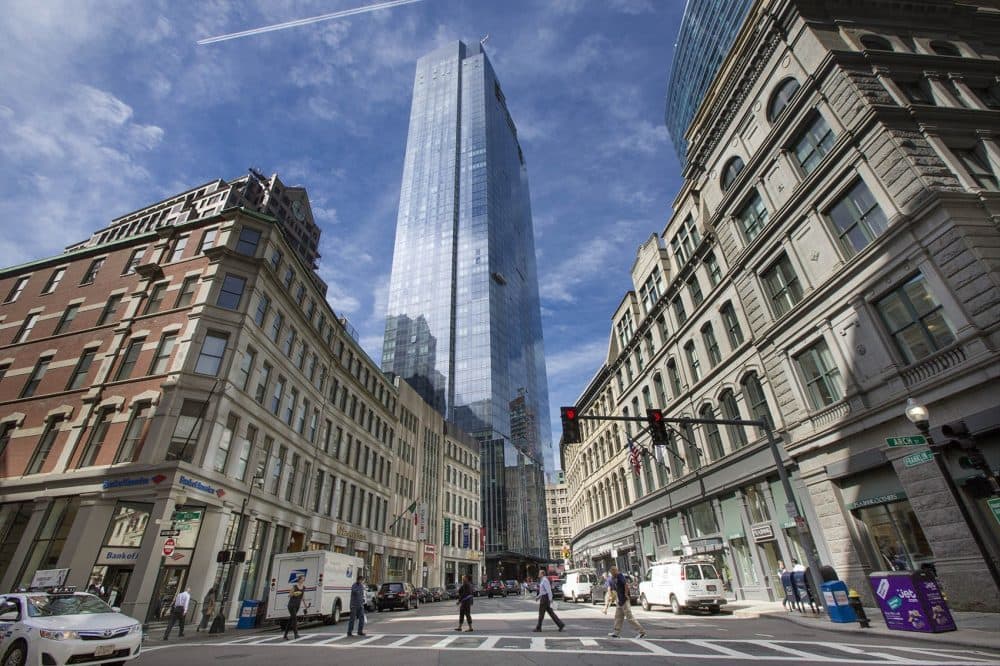The millionaire's tax was not mindlessly whipped up by a bunch of power-drunk communist revolutionaries--believe it or not, progressives do care _a lot_ about long-term tax revenue. The tax
was studied, and while that study did anticipate tax avoidance, it did not anticipate the avoidance would come in the form of all the millionaires leaving:
Now, the study could be wrong. Multimillionaires could be leaving. But that's something we'd be able to clearly observe with data, right? You're asserting that it's the cause, so burden of proof is on you to back that claim up. If you can show that a significant portion of MA's multimillionaires left the state last year, I'll eat my words.
Yeah, they're ugly. But "the numbers are bad" is not the same as "the numbers are bad, and we can tell exactly what caused them." If we're ignoring proof, I could easily whip up a claim that Baker's disinvestment in public transit infrastructure has soured the desire of wealthy professionals to live and work in Boston. To be clear, I'm not claiming that, and I don't have proof of it anyway.... but I'm saying it to illustrate that you spin any news story in any direction you want if you don't care about proof.
I absolutely believe that Progressives do "care" and that their intent was as you say it is. However, where they focus strictly on intent, I focus on actual results, and Progressive results tend to be abysmal. The law was passed in late 2022, and one of the quotes above is literally:
"
After years of sometimes record-breaking budget surpluses, tax revenues began tailing off in 2023. The state’s take plummeted last April before it ended the fiscal year, having collected roughly $600 million less than it expected. The vast majority of that shortfall, roughly $593 million, involved lower-than-expected collections of capital gains taxes, a volatile revenue source, officials said at the time."
The timing is very specific, much more so than people suddenly getting "fed up" simultaneously with transportation. If there was a specific action on transportation then I would be more likely to agree to that as a cause, but the specific action was the passing of the millionaire's tax. It is true that correlation is not causation, but it seems pretty convenient that one happened right before the other.
I'm unable to locate exact numbers of people who left (yet, eventually it will be out there), but this article gives a further glimpse into the immediacy of the state's decline.
Massachusetts annual revenue continues to lag expectations despite the controversial millionaires tax approved in 2022. What does that mean for a similar wealth tax proposed in Rhode Island?

rhodeislandcurrent.com
"“Massachusetts imposed some serious changes to its tax code, which is obviously having a significant impact in terms of taxpayer revenue leaving the state,” Laurie White, president of the Greater Providence Chamber of Commerce, said. “It’s really showing that it’s hurting their economy.”
And Massachusetts’ loss could be Rhode Island’s gain.
The Rhode Island Public Expenditure Council (RIPEC) in a Feb. 29 brief touted Rhode Island’s favorable tax standing — surpassing Massachusetts for the first time in a decade, according to 2024 rankings of business friendliness by the Tax Foundation. Rhode Island made strides to improve its business tax climate, wiping away the pesky tangible tax for most small businesses, for example. Meanwhile, Massachusetts’ ranking fell by 12 spots after approving a state wealth tax. "
After the millionaire's tax was passed, Massachusetts dropped from 34th in the "Business Tax Climate Index" to 46th. Once again, correlation is not causation, but there is a lot of evidence that this is doing the damage to our state's budget that many of us anticipated it would.
So basically we no longer have an attractive business climate, we're incentivizing rich people to leave, and we have the most generous benefits in the country to pay to a never-ending stream of outsiders (costing at least $1 billion a year out of our shrinking tax revenue, and climbing), while cutting funding to Massachusetts residents in need. Then for the businesses that are still here, in what's now the 46th best state from a business tax climate perspective, we have a mayor who wants to increase their tax rates and accelerate the death spiral.
Mayor Wu plans to file legislation that would allow Boston to increase property taxes on businesses. The move comes as commercial property values have dipped due to inflation and the post-pandemic shift to remote and hybrid work. A recent report found the city may lose $1.4 billion in tax...

www.wbur.org
All the evidence so far points back to a handful of disastrous policies, with the Millionaire's tax the most critical piece in the declining revenues. I'll find the numbers eventually for numbers who left, but for now there is already plenty of evidence to logically connect the dots that we are driving wealth and future value creation out of the state.



